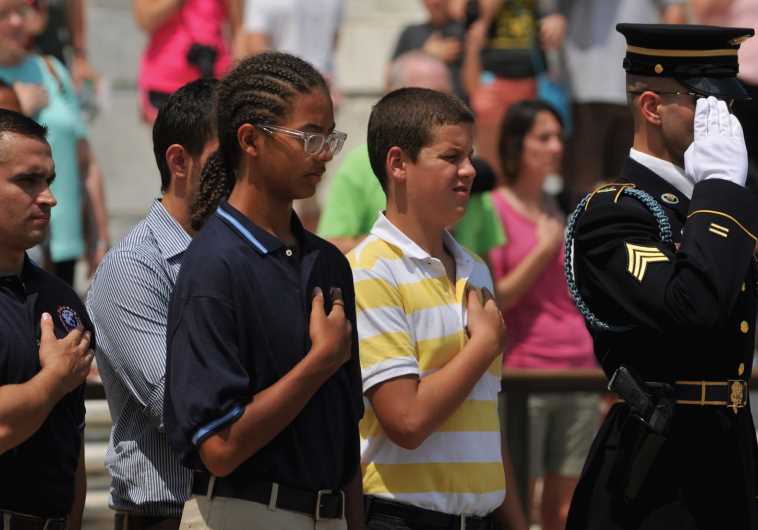Brothers in arms
The IDF Widows and Orphans Organization was established in 1991; it works with more than 8,000 widows and orphans of the Israeli security forces.
 Children participate in the wreath-laying ceremony at Arlington National Cemetery.(photo credit: SPC. KLINTON SMITH)
Children participate in the wreath-laying ceremony at Arlington National Cemetery.(photo credit: SPC. KLINTON SMITH)